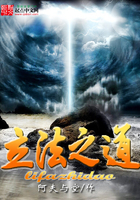An officer of the Royal Engineers stood on the seaward edge of this yawning abyss; then he walked over to the almost circular body of water which occupied the place where the fishing village had been, and into which the waters of the bay had flowed.When this officer returned toLondon he wrote a report to the effect that a ship canal, less than an eighth of a mile long, leading from the newly formed lake at the head of the bay, would make of this chasm, when filled by the sea, the finest and most thoroughly protected inland basin for ships of all sizes on the British coast.But before this report received due official consideration the idea had been suggested and elaborated in a dozen newspapers.Accounts and reports of all kinds describing the destruction of Caerdaff, and of the place in which it had stood, filled the newspapers of the world.Photo- graphs and pictures of Caerdaff as it had been and as it then was were produced with marvellous rapidity, and the earthquake bomb of the American War Syndicate was the subject of excited conversation in every civilized country.The British Ministry was now the calmest body of men in Europe.The great opposition storm had died away, the great war storm had ceased, and the wisest British statesmen saw the unmistakable path of national policy lying plain and open before them.There was no longer time for arguments and struggles with opponents or enemies, internal or external.There was even no longer time for the discussion of measures.It was the time for the adoption of a measure which indicated itself, and which did not need discussion.On the afternoon of the day of the bombardment of Caerdaff, Repeller No.11, accompanied by her crabs, steamed for the English Channel.Two days afterward there lay off the coast at Brighton, with a white flag floating high above her, the old Tallapoosa, now naval mistress of the world.Near by lay a cable boat, and constant communication by way of France was kept up between the officers of the American Syndicate and the repeller.In a very short time communications were opened between the repeller and London.When this last step became known to the public of America, almost as much excited by the recent events as the public of England, a great disturbance arose in certain political circles.It was argued that the Syndicate had no right to negotiate in any way with the Government of England; that it had been empowered to carry on a war; and that, if its duties in this regard had been satisfactorily executed, it must now retire, and allow the United States Government to attend to its foreign relations.But the Syndicate was firm.It had contracted to bring the war to a satisfactory conclusion.When itconsidered that this had been done, it would retire and allow the American Government, with whom the contract had been made, to decide whether or not it had been properly performed.The unmistakable path of national policy which had shown itself to the wisest British statesmen appeared broader and plainer when the overtures of the American War Syndicate had been received by the British Government.The Ministry now perceived that the Syndicate had not waged war; it had been simply exhibiting the uselessness of war as at present waged.Who now could deny that it would be folly to oppose the resources of ordinary warfare to those of what might be called prohibitive warfare.Another idea arose in the minds of the wisest British statesmen.If prohibitive warfare were a good thing for America, it would be an equally good thing for England.More than that, it would be a better thing if only these two countries possessed the power of waging prohibitive warfare.In three days a convention of peace was concluded between Great Britain and the American Syndicate acting for the United States, its provisions being made subject to such future treaties and alliances as the governments of the two nations might make with each other.In six days after the affair at Caerdaff, a committee of the American War Syndicate was in London, making arrangements, under the favourable auspices of the British Government, for the formation of an Anglo-American Syndicate of War.The Atlantic Ocean now sprang into new life.It seemed impossible to imagine whence had come the multitude of vessels which now steamed and sailed upon its surface.Among these, going westward, were six crabs, and the spring-armoured vessel, once the Tallapoosa, going home to a triumphant reception, such as had never before been accorded to any vessel, whether of war or peace.The blockade of the Canadian port, which had been effectively maintained without incident, was now raised, and the Syndicate's vessels proceeded to an American port.The British ironclad, Adamant, at the conclusion of peace was still in tow of Crab C, and off the coast of Florida.A vessel was sent down the coast by the Syndicate to notify Crab C of what had occurred, and to order it to tow the Adamant to the Bermudas, and there deliver her to the British authorities.The vessel sent by the Syndicate, which was a fast coast- steamer, had scarcely hovein sight of the objects of her search when she was saluted by a ten-inch shell from the Adamant, followed almost immediately by two others.The commander of the Adamant had no idea that the war was at an end, and had never failed, during his involuntary cruise, to fire at anything which bore the American flag, or looked like an American craft.Fortunately the coast steamer was not struck, and at the top of her speed retired to a greater distance, whence the Syndicate officer on board communicated with the crab by smoke signals.During the time in which Crab C had had charge of the Adamant no communication had taken place between the two vessels.Whenever an air-pipe had been elevated for the purpose of using therein a speaking- tube, a volley from a machine-gun on the Adamant was poured upon it, and after several pipes had been shot away the director of the crab ceased his efforts to confer with those on the ironclad.It had been necessary to place the outlets of the ventilating apparatus of the crab under the forward ends of some of the upper roof- plates.When Crab C had received her orders, she put about the prow of the great warship, and proceeded to tow her north-eastward, the commander of the Adamant taking a parting crack with his heaviest stern- gun at the vessel which had brought the order for his release.All the way from the American coast to the Bermuda Islands, the great Adamant blazed, thundered, and roared, not only because her commander saw, or fancied he saw, an American vessel, but to notify all crabs, repellers, and any other vile invention of the enemy that may have been recently put forth to blemish the sacred surface of the sea, that the Adamant still floated, with the heaviest coat of mail and the finest and most complete armament in the world, ready to sink anything hostile which came near enough--but not too near.When the commander found that he was bound for the Bermudas, he did not understand it, unless, indeed, those islands had been captured by the enemy.But he did not stop firing.Indeed, should he find the Bermudas under the American flag, he would fire at that flag and whatever carried it, as long as a shot or a shell or a charge of powder remained to him.But when he reached British waters, and slowly entering St.George's harbour, saw around him the British flag floating as proudly as it floated above his own great ship, he confessed himself utterlybewildered; but he ordered the men at every gun to stand by their piece until he was boarded by a boat from the fort, and informed of the true state of affairs.But even then, when weary Crab C raised herself from her fighting depth, and steamed to a dock, the commander of the Adamant could scarcely refrain from sending a couple of tons of iron into the beastly sea- devil which had had the impertinence to tow him about against his will.No time was lost by the respective Governments of Great Britain and the United States in ratifying the peace made through the Syndicate, and in concluding a military and naval alliance, the basis of which should be the use by these two nations, and by no other nations, of the instantaneous motor.The treaty was made and adopted with much more despatch than generally accompanies such agreements between nations, for both Governments felt the importance of placing themselves, without delay, in that position from which, by means of their united control of paramount methods of warfare, they might become the arbiters of peace.The desire to evolve that power which should render opposition useless had long led men from one warlike invention to another.Every one who had constructed a new kind of gun, a new kind of armour, or a new explosive, thought that he had solved the problem, or was on his way to do so.The inventor of the instantaneous motor had done it.The treaty provided that all subjects concerning hostilities between either or both of the contracting powers and other nations should be referred to a Joint High Commission, appointed by the two powers; and if war should be considered necessary, it should be prosecuted and conducted by the Anglo- American War Syndicate, within limitations prescribed by the High Commission.The contract made with the new Syndicate was of the most stringent order, and contained every provision that ingenuity or foresight of man could invent or suggest to make it impossible for the Syndicate to transfer to any other nation the use of the instantaneous motor.Throughout all classes in sympathy with the Administrative parties of Great Britain and the United States there was a feeling of jubilant elation on account of the alliance and the adoption by the two nations of the means of prohibitive warfare.This public sentiment acted even upon the opposition; and the majority of army and navy officers in the two countries felt boundto admit that the arts of war in which they had been educated were things of the past.Of course there were members of the army and navy in both countries who deprecated the new state of things.But there were also men, still living, who deprecated the abolition of the old wooden seventy-four gun ship.A British artillery officer conversing with a member of the American Syndicate at a London club, said to him:-- "Do you know that you made a great mistake in the beginning of your operations with the motor-guns? If you had contrived an attachment to the motor which should have made an infernal thunder-clap and a storm of smoke at the moment of discharge it would have saved you a lot of money and time and trouble.The work of the motor on the Canadian coast was terrible enough, but people could see no connection between that and the guns on your vessels.If you could have sooner shown that connection you might have saved yourselves the trouble of crossing the Atlantic.And, to prove this, one of the most satisfactory points connected with your work on the Welsh coast was the jet of smoke which came from the repeller every time she discharged a motor.If it had not been for those jets, I believe there would be people now in the opposition who would swear that Caerdaff had been mined, and that the Ministry were a party to it." "Your point is well taken," said the American, "and should it ever be necessary to discharge any more bombs,--which I hope it may not be,--we shall take care to show a visible and audible connection between cause and effect." "The devil take it, sir!" cried an old captain of an English ship-of-the-line, who was sitting near by."What you are talking about is not war! We might as well send out a Codfish Trust to settle national disputes.In the next sea-fight we'll save ourselves the trouble of gnawing and crunching at the sterns of the enemy.We'll simply send a note aboard requesting the foreigner to be so good as to send us his rudder by bearer, which, if properly marked and numbered, will be returned to him on the conclusion of peace.This would do just as well as twisting it off, and save expense.No, sir, I will not join you in a julep! _I_ have made no alliance over new-fangled inventions! Waiter, fetch me some rum and hot water!" In the midst of the profound satisfaction with which the members of the American War Syndicate regarded the success of their labours,--labours alike profitable tothemselves and to the recently contending nations,--and in the gratified pride with which they received the popular and official congratulations which were showered upon them, there was but one little cloud, one regret.In the course of the great Syndicate War a life had been lost.Thomas Hutchins, while assisting in the loading of coal on one of the repellers, was accidentally killed by the falling of a derrick.The Syndicate gave a generous sum to the family of the unfortunate man, and throughout the United States the occurrence occasioned a deep feeling of sympathetic regret.A popular subscription was started to build a monument to the memory of Hutchins, and contributions came, not only from all parts of the United States, but from many persons in Great Britain who wished to assist in the erection of this tribute to the man who had fallen in the contest which had been of as much benefit to their country as to his own.Some weeks after the conclusion of the treaty, a public question was raised, which at first threatened to annoy the American Government; but it proved to be of little moment.An anti-Administration paper in Peakville, Arkansas, asserted that in the whole of the published treaty there was not one word in regard to the fisheries question, the complications arising from which had been the cause of the war.Other papers took up the matter, and the Government then discovered that in drawing up the treaty the fisheries business had been entirely overlooked.There was a good deal of surprise in official circles when this discovery was announced; but as it was considered that the fisheries question was one which would take care of itself, or be readily disposed of in connection with a number of other minor points which remained to be settled between the two countries, it was decided to take no notice of the implied charge of neglect, and to let the matter drop.And as the opposition party took no real interest in the question, but little more was said about it.Both countries were too well satisfied with the general result to waste time or discussion over small matters.Great Britain had lost some forts and some ships; but these would have been comparatively useless in the new system of warfare.On the other hand, she had gained, not only the incalculable advantage of the alliance, but a magnificent and unsurpassed landlocked basin on the coast of Wales.The United States had been obliged to pay an immense sum onaccount of the contract with the War Syndicate, but this was considered money so well spent, and so much less than an ordinary war would have cost, that only the most violent anti-Administration journals ever alluded to it.Reduction of military and naval forces, and gradual disarmament, was now the policy of the allied nations.Such forces and such vessels as might be demanded for the future operations of the War Syndicate were retained.A few field batteries of motor-guns were all that would be needed on land, and a comparatively small number of armoured ships would suffice to carry the motor-guns that would be required at sea.Now there would be no more mere exhibitions of the powers of the instantaneous motor-bomb.Hereafter, if battles must be fought, they would be battles of annihilation.This is the history of the Great Syndicate War.Whether or not the Anglo-American Syndicate was ever called upon to make war, it is not to be stated here.But certain it is that after the formation of this Syndicate all the nations of the world began to teach English in their schools, and the Spirit of Civilization raised her head with a confident smile.
同类推荐
热门推荐
孩子最需要父母解决的50个心理问题
本书精选孩子在成长过程中亟待解决的50个心理问题,以专业的知识和视角进行剖析,提出切实可行的解决方案,它将会带给广大家长新的理念、新的感受和新的启发,帮助广大家长朋友一起解决孩子的心理问题,让孩子健康成长。















